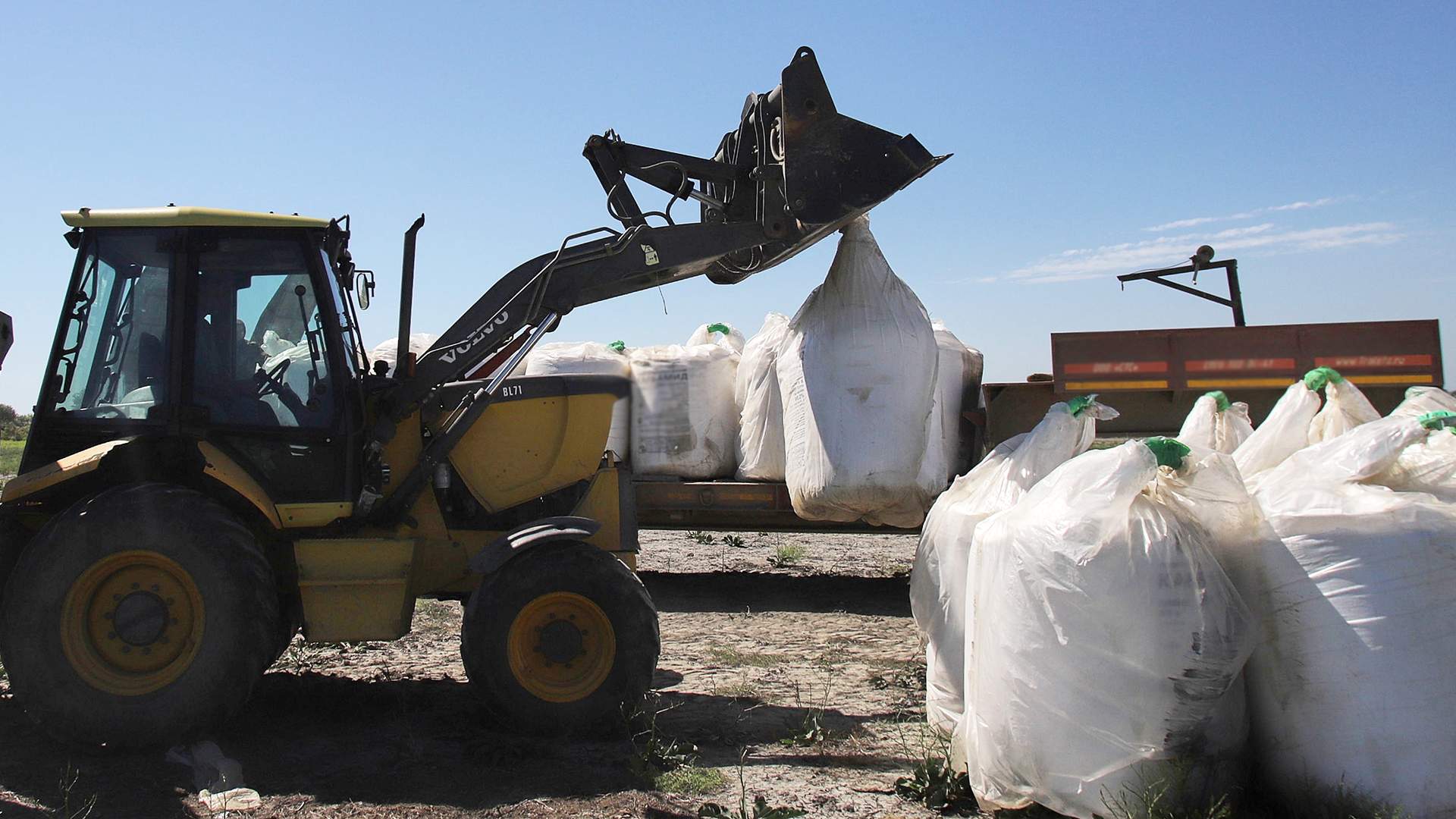Green fuel: the EU has become dependent on Russian fertilizers

The EU imports 48% more nitrogen fertilizers from Russia than before the escalation of the Ukrainian conflict. Brussels continues to buy products from Moscow despite the sanctions imposed on Russia in various areas. Some countries complain about the environmental friendliness of raw materials, but even this does not stop anyone. The reasons for the growth of Russian exports are discussed in the Izvestia article.
Caught in dependence
"Fertilizers are part of global food security. That is why they are not subject to numerous sanctions. We have replaced our dependence on Russian gas with dependence on Russian fertilizers," said Norwegian MP Gyuri Melby.
According to her, Eurostat published data according to which the EU imports 48% more Russian nitrogen fertilizers than before the escalation of the conflict in Ukraine.
Despite the fact that Norway is not a member of the EU, Melby urged Foreign Minister Espen Barth Eide to pay attention to the problem and discuss with Brussels the possibilities of reducing imports.
In addition, the MP proposed to impose restrictions on this import item.
The import of fertilizers from Russia to the EU reached its maximum in May 2024. Despite the various sanctions imposed against Russia in various sectors, the EU continued to actively purchase products from Moscow.
Instead of natural gas
Svein Tore Holseter, CEO of Yara International, one of the largest producers of crop fertilizers, compared the EU's dependence on Russian fertilizers to its dependence on natural gas in a conversation with the Financial Times.
According to Eurostat, Russian fertilizer imports are at record levels, accounting for a third of total imports. Morocco and Egypt are considered the other major suppliers of complex plant nutrition to the EU.
"Fertilizers have become the new gas," a British publication writes on the subject.
Nitrogen fertilizers - ammonia and urea - are essential for plant growth. They are produced using natural gas.
Sanctions imposed against Russia in 2022 have limited the availability of blue fuel for European producers. The cost of production has risen so much that it has made the fertilizer business unprofitable.
This has hurt local farmers. In some EU countries, they stopped using fertilizers, which in turn reduced crop yields and intensified the food crisis.
Then it was decided to increase imports of Russian nutrients for European farmers. It turned out that, even despite the logistical costs, purchasing products from the Russian Federation, thanks to its access to less expensive fuel and energy, was cheaper than producing its own fertilizers.
In 2024, purchases were especially increased by Belgium, increasing imports almost fivefold, more than twice by Bulgaria and Romania, and 1.8 times by Germany.
All this is causing discontent in Brussels. There are also environmental concerns about the carbon footprint of Russian products. However, even because of this, the EU is unable to refuse fertilizers from Russia.
So far, no sanctions have been imposed against the supply of fertilizers from Russia, but the EU has already taken up the issue. In particular, Brussels is actively studying the impact of imports of Russian complex fertilizers for plants and grain on the EU market.
As explained in the European Commission, so far restrictive measures are not introduced because of the risk of causing damage to some European countries, but this does not exclude the fact that the position of Brussels may change at any time.
Nevertheless, Poland, Lithuania, Latvia and Estonia have sent a letter to the European Commission calling on it to impose a customs duty on fertilizer imports from Russia. They are discussing duties of 30-40% for nitrogen, phosphate and potash fertilizers. However, despite the appeal, market participants believe that the imposition of duties is still unlikely, given Europe's dependence on Russian fertilizers.
What experts think
Yaroslav Kabakov, Strategy Director of Finam Investment Company, in his conversation with Izvestia explained the growth of Russian fertilizer exports to the EU.
- There are several factors: fertilizers have not fallen under anti-Russian sanctions, so they can be freely supplied to the EU; plant fertilizers supplied from Russia remain competitive on the world market due to low production costs; in addition, agricultural producers from the EU maintain high demand," the expert lists.
Natalya Eremina, Doctor of Political Science, Professor of St. Petersburg State University, in her conversation with Izvestia stressed the trend related to the constant growth of the fertilizer market.
- Most likely, in a growing economy there is a reorientation of supplies: major producers in developed and developing countries are mainly focused on the domestic market. The Russian Federation is among the top three fertilizer exporters, and it will not be possible to replace it with any other country, even formally," the expert said.
According to the expert, the EU countries probably did not calculate the damage and losses for their agriculture when making decisions on sanctions against Russia.
- Agriculture in the EU is constantly shrinking. But even with the reduced demand for fertilizers, it turned out to be impossible to replace Moscow. Fertilizer production requires gas, and Russia is the largest gas-supplying state with a large gas reserve. So Brussels made an ill-considered decision," the political scientist said.
Alexander Daniltsev, Director of the Trade Policy Institute at the National Research University Higher School of Economics, believes that the market prospects will largely depend on price fluctuations, and the cost of raw materials for nitrogen fertilizer production, namely natural gas, has a determining influence on prices.
- It is impossible to completely replace Russia as a fertilizer supplier in the EU market. The next major third-country suppliers to the EU, Egypt and Morocco, together provided less than 11% of the EU countries' import needs in the previous year," the expert summarized.
Переведено сервисом «Яндекс Переводчик»





